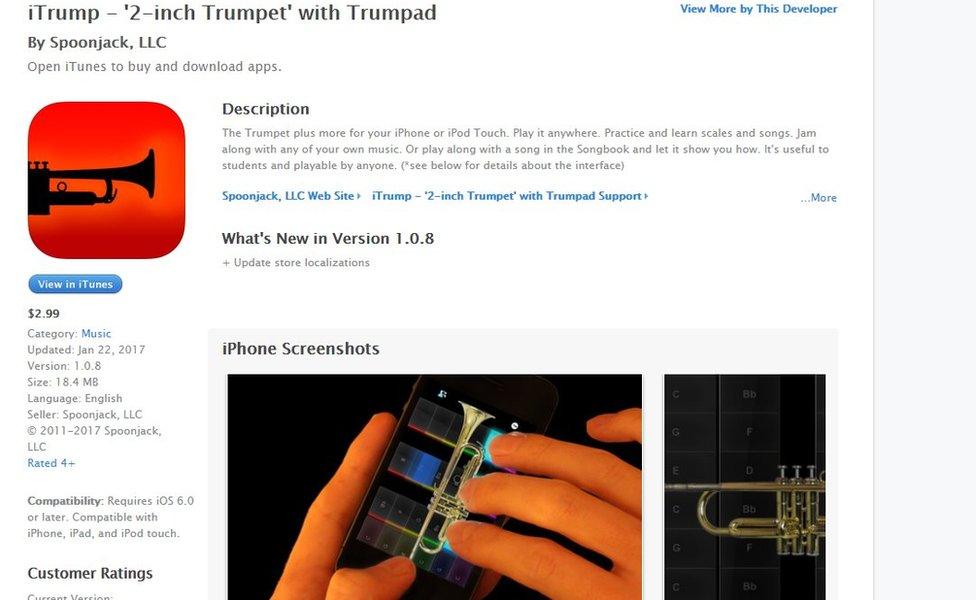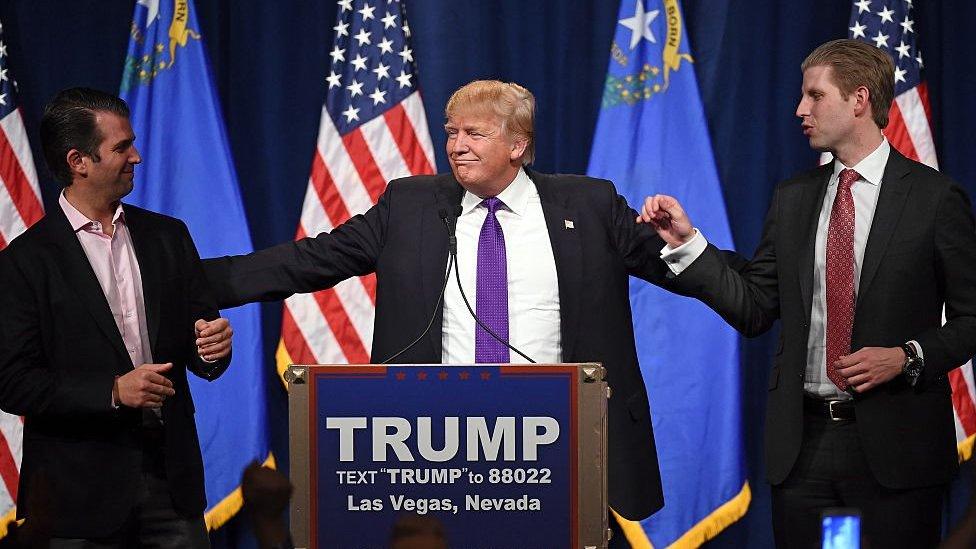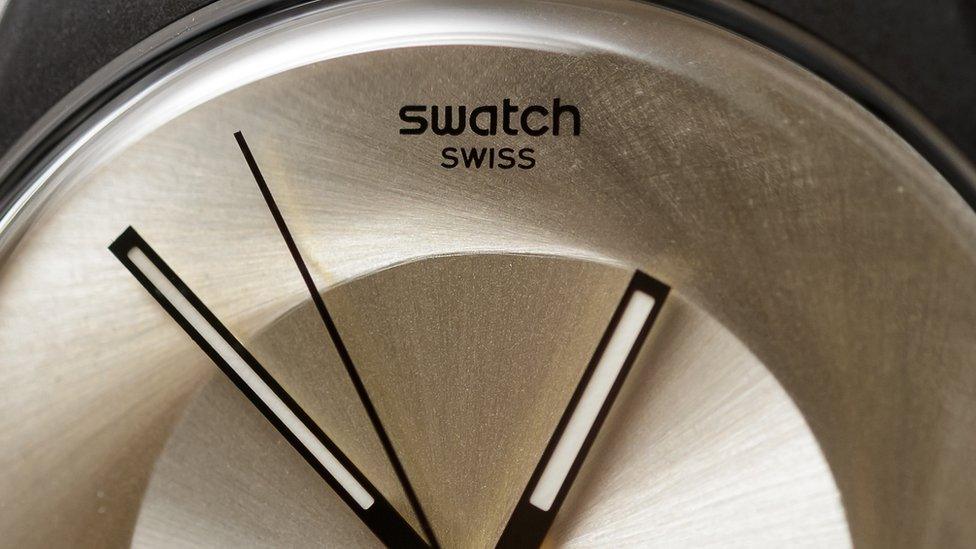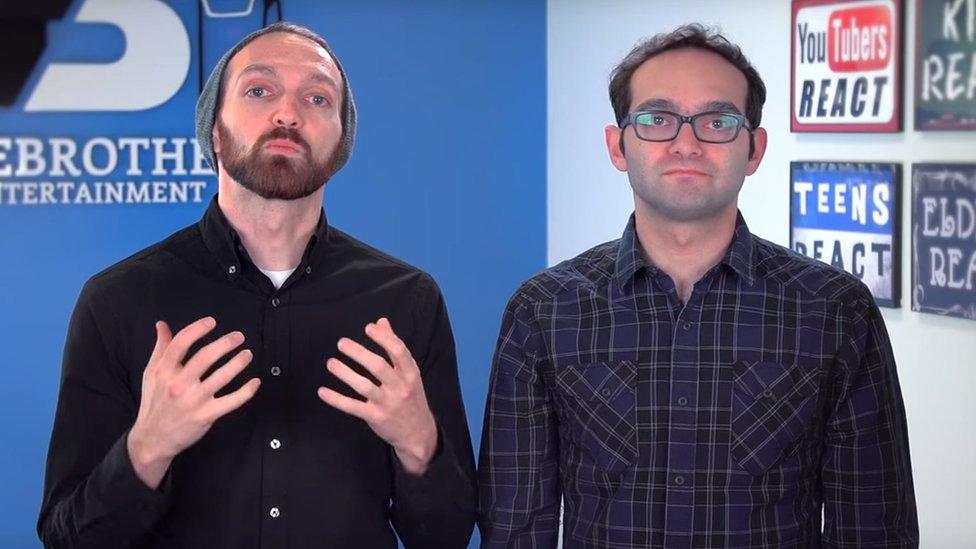App iTrump wins trademark fight against Trump Organization
- Published

iTrump was a follow-up app to iBone, a trombone simulator
An app developer appears to have prevailed in a long-running trademark war against the US president's business operation.
The creator of iTrump first clashed with the Trump Organization in January 2011, external, when the billionaire's lawyers alleged the trumpet simulator's name falsely suggested a link to the tycoon.
After defeating this claim, the developer then went on the attack.
And this resulted, external in the company losing a key trademark of its own last week.
On 11 August, the US Trademark Trial and Appeal Board cancelled the New York-headquartered company's exclusive right to use "Trump" in relation to entertainment services, including reality TV shows.
The ruling followed earlier victories by San Francisco-based Tom Scharfeld, in which he prevented the Trump Organization from owning the exclusive right to use "Trump" in connection with, external computer games, golf-related mobile apps and music streaming.

What are trademarks?
Trademarks are the distinctive name or symbol used to identity a product made by a manufacturer or a good distributed by a dealer.
Trademark law is generally concerned with avoiding consumer confusion regarding the origin or manufacturer of a product.
To trademark an existing word, the applicant needs to demonstrate they have given it new meaning and that there would not be grounds for confusion with other marks.

The Bloomberg news agency was first to report, external last week's development.
It brings to an end the legal action, external between Mr Scharfeld's company Spoonjack and the US president's conglomerate, assuming neither side launches a fresh claim.

Donald Trump passed control of his business to his two eldest sons after becoming the US president
Mr Scharfeld had represented himself, which required teaching himself about trademark law.
He told Bloomberg that he believed Mr Trump's legal team "didn't seem to respect that I could do this".
"I just wanted to be treated fairly," he said.
He added that he now planned to spend more of his time marketing his music apps rather than defending them.
- Published20 June 2016

- Published13 September 2016

- Published2 February 2016
